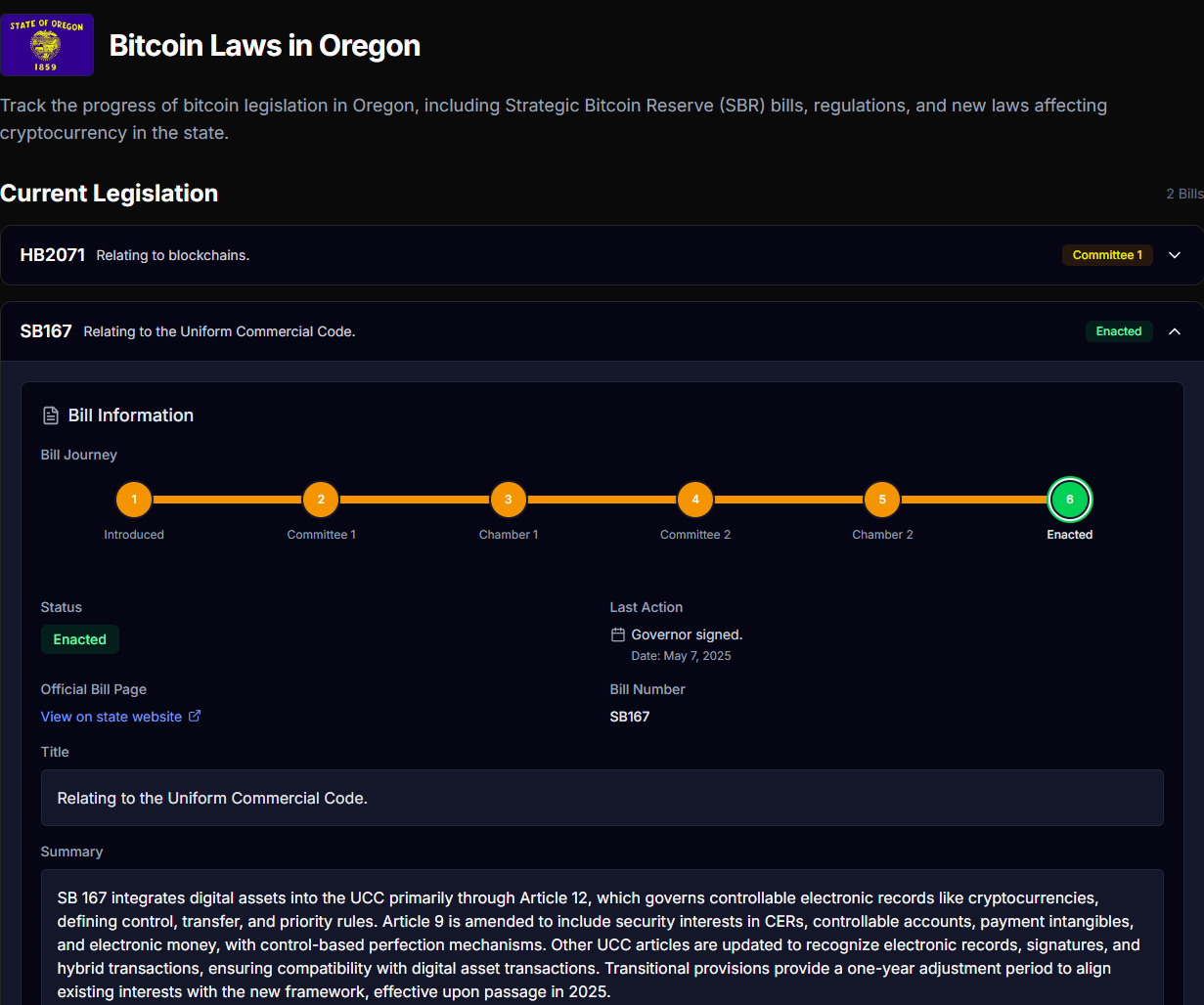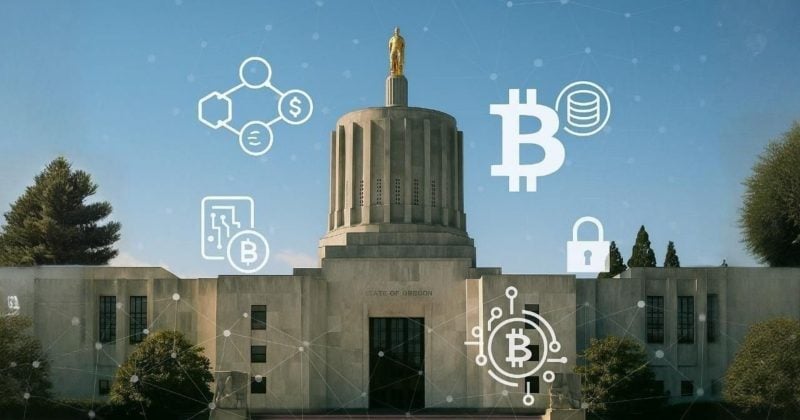Oregon passes bill to establish legal control standards for digital assets
Key Takeaways
- Oregon passed Senate Bill 167 to update commercial laws and include digital assets in the UCC.
- The new law allows digital assets to be used as collateral and recognizes electronic records and signatures.
Share this article
Oregon has enacted Senate Bill 167, updating the state’s commercial laws to incorporate digital assets into the Uniform Commercial Code (UCC).

The legislation, signed by Governor Tina Kotek on May 7, introduces UCC Article 12, which creates a legal framework for digital assets including crypto assets, tokenized records, and electronic money.
The bill amends Article 9 to allow digital assets to be used as collateral in secured transactions. It also updates several UCC articles to recognize electronic records, signatures, and hybrid transactions to support digital commerce.
The new law includes transitional provisions that maintain the validity of transactions made before the act’s effective date and provides a one-year period for existing security interests to comply with the new regulations.
Before these changes, there was legal uncertainty about how digital assets fit into existing commercial laws, especially when used as collateral or transferred between parties. The UCC amendments clarify how rights in these assets can be legally controlled, perfected, and enforced.
Apart from SB 167, House Bill 2071 is another crypto-related bill introduced in Oregon.
This proposed legislation focuses on blockchain and digital asset rights. It is aimed at protecting and promoting the use of Bitcoin and other digital assets in the state by limiting regulatory barriers and clarifying the legal framework for blockchain-based activities.
Some of the highlights of the bill include a prohibition on state and local governments from restricting or impairing a person’s ability to accept digital assets as payment for lawful goods and services, as well as the right to conduct peer-to-peer transactions via blockchain or digital asset networks.
The bill is still in the early stages of the legislative process and has not yet advanced to a vote in either the House or the Senate.
Unlike most US states, Oregon lawmakers have not proposed any bill to create a state Bitcoin reserve as of now.
Share this article

